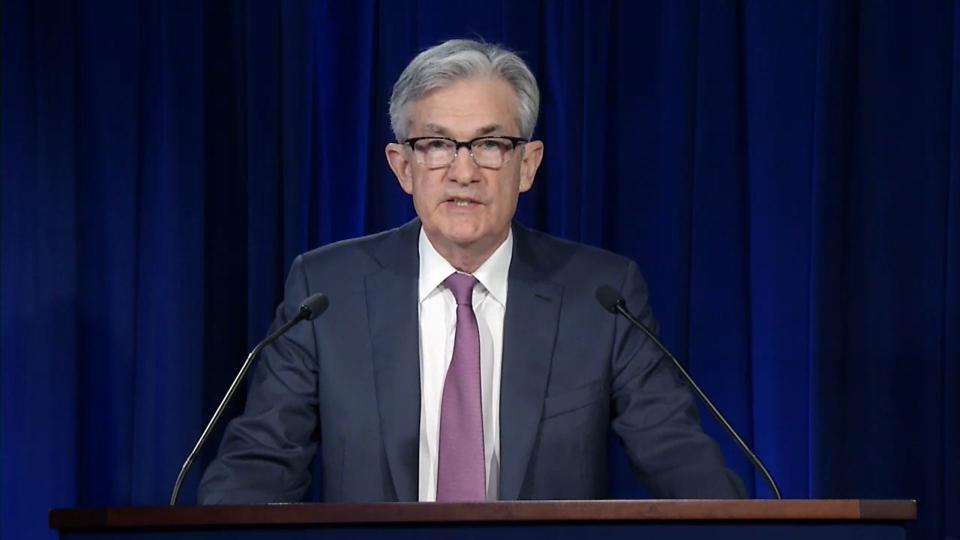Fed Chair Powell: US economy faces 'longer-term concerns'
Federal Reserve Chairman Jerome Powell said the central bank would continue to use its policy tools to mitigate the impact of the novel coronavirus on the U.S. economy, but warned that the length of the health crisis raises “longer-term concerns.”
Powell said in prepared remarks Wednesday that the depth and length of a recession can “leave behind lasting damage” to an economy’s productivity, a hint that those inside the Fed see slim chances of a quick, V-shaped recovery.
“The recovery may take some time to gather momentum, and the passage of time can turn liquidity problems into solvency problems,” Powell said.
Powell said household and business insolvencies and the loss of small and medium-sized businesses could “limit the strength of the recovery when it comes,” adding that the loss of jobs risks widening the skills gap depending on how long the unemployed remain without work.
Powell pointed to a Fed survey being released tomorrow that details a 40% loss of jobs among households making less than $40,000 a year.
A weak recovery, Powell said, could also harm business investment which would limit the return of jobs in a recovery.
“We ought to do what we can to avoid these outcomes, and that may require additional policy measures,” Powell said in the virtual remarks at the Peterson Institute for International Economics.

Powell said fiscal policymakers on Capitol Hill could do more to ensure that the economy is set up for the best possible recovery, arguing that lawmakers with the power to tax and spend should be engineering further relief packages.
“Additional fiscal support could be costly, but worth it if it helps avoid long-term economic damage and leaves us with a stronger recovery,” Powell said.
For the Fed’s part, Powell said the priority has been the Fed’s many liquidity tools aimed at avoiding a financial crisis, pledging to use those tools “to their fullest” until the central bank is confident that the economic recovery is underway.
In March, the Fed slashed interest rates to zero and re-launched its crisis-era quantitative easing program.
Powell said the U.S. economy had looked healthy prior to the COVID-19 crisis, adding that “there was no economy-threatening bubble to pop and no unsustainable boom to bust.
Powell is scheduled to speak again on May 19 in Congressional testimony. The central bank’s next policy-setting meeting is scheduled for June 9 and 10.
Brian Cheung is a reporter covering the Fed, economics, and banking for Yahoo Finance. You can follow him on Twitter @bcheungz.
Black-owned businesses will see extended 'challenge' even after pandemic ends
St. Louis Fed's Bullard: US economy can return 'pretty close to normal' in Q4
St. Louis Fed's Bullard: Negative interest rates would be 'problematic' in US
Millions of unbanked Americans face longer wait for CARES Act checks
A glossary of the Federal Reserve's full arsenal of 'bazookas'
Read the latest financial and business news from Yahoo Finance
Follow Yahoo Finance on Twitter, Facebook, Instagram, Flipboard, SmartNews, LinkedIn, YouTube, and reddit.
